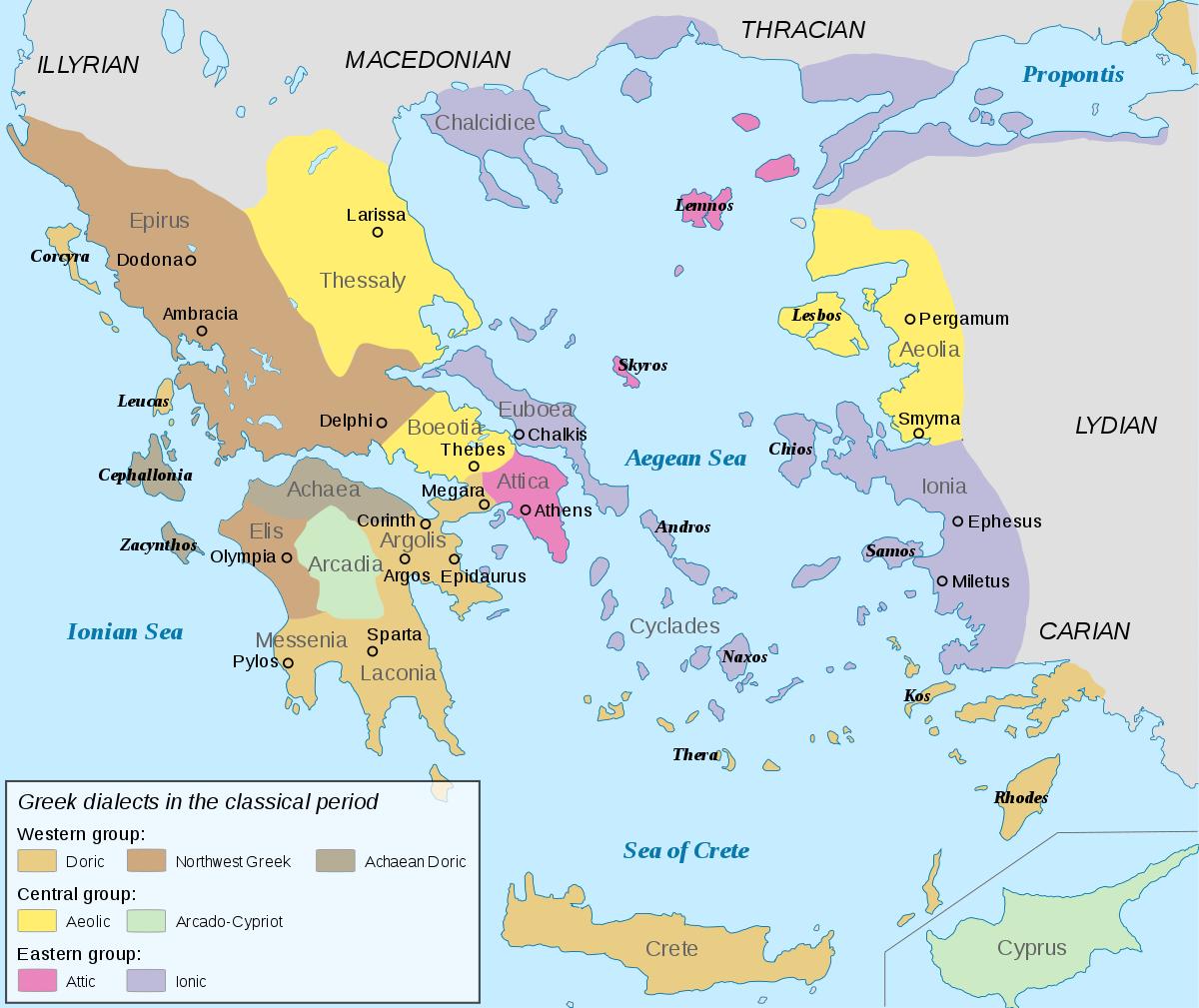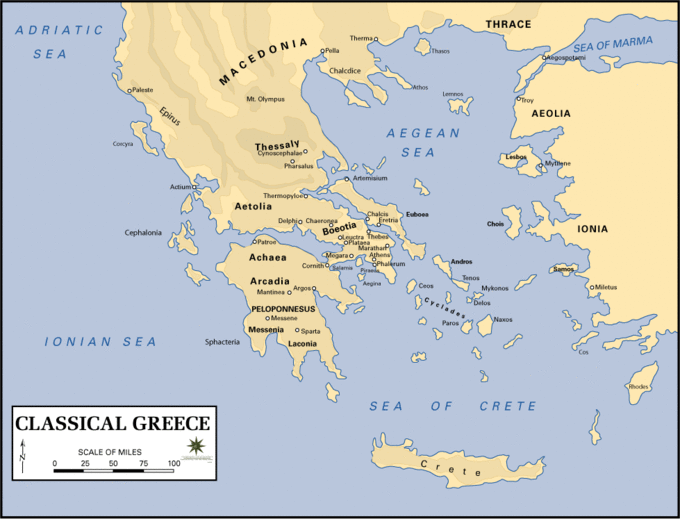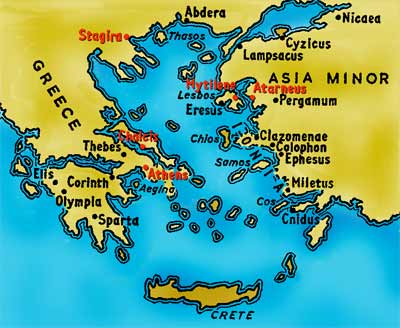Unveiling the Tapestry of Ionia: A Journey Through Ancient Greece’s Aegean Frontier
Related Articles: Unveiling the Tapestry of Ionia: A Journey Through Ancient Greece’s Aegean Frontier
Introduction
In this auspicious occasion, we are delighted to delve into the intriguing topic related to Unveiling the Tapestry of Ionia: A Journey Through Ancient Greece’s Aegean Frontier. Let’s weave interesting information and offer fresh perspectives to the readers.
Table of Content
Unveiling the Tapestry of Ionia: A Journey Through Ancient Greece’s Aegean Frontier

Ionia, a region steeped in history and renowned for its vibrant culture, occupies a prominent position in the tapestry of Ancient Greece. Situated on the western coast of Asia Minor, its strategic location at the crossroads of East and West facilitated a unique blend of influences, shaping its distinctive identity. Understanding Ionia necessitates a journey through its geography, its historical significance, and the enduring legacy it left behind.
A Geographical Overview:
Ionia’s landscape is characterized by a diverse and captivating terrain. The region stretches along the Aegean coastline, encompassing fertile plains, rugged mountains, and picturesque islands. Its geography played a crucial role in shaping its history and culture. The fertile plains provided ample resources for agriculture, while the rugged mountains offered protection and strategic advantage. The Aegean Sea, a vital artery of trade and communication, connected Ionia with the mainland of Greece and the wider Mediterranean world.
The Cities of Ionia:
Ionia was home to a network of thriving cities, each with its own unique character and contributions to Greek civilization. The most prominent among them include:
- Miletus: Renowned for its philosophers, scientists, and merchants, Miletus was a hub of intellectual and economic activity. It gave birth to Thales, considered the father of philosophy, and Anaximander, a pioneering cosmologist.
- Ephesus: A major commercial center and a prominent religious site, Ephesus was home to the Temple of Artemis, one of the Seven Wonders of the Ancient World. Its strategic location on the Aegean Sea made it a vital port city.
- Smyrna: A bustling port city, Smyrna was known for its commerce, its arts, and its vibrant cultural life. It was a center of learning and a place where East met West.
- Chios: Famous for its wine and its pottery, Chios was a significant producer of both commodities, exporting them throughout the Mediterranean.
- Samos: Known for its engineering prowess, Samos was home to the tunnel of Eupalinos, an impressive feat of ancient engineering.
The Ionian Revolt:
The relationship between Ionia and the mainland Greek city-states was often complex. While Ionian cities shared cultural and linguistic ties with their Greek counterparts, they also experienced periods of conflict and tension. The Ionian Revolt (499-494 BCE) marked a pivotal moment in the history of Ionia. This rebellion against Persian rule, though ultimately unsuccessful, demonstrated the Ionians’ determination to assert their independence and their commitment to Greek identity.
The Legacy of Ionia:
Ionia’s legacy extends far beyond its historical significance. Its influence on Greek culture, philosophy, and the arts is profound. The Ionians were pioneers in various fields, including philosophy, science, and literature. Their contributions shaped the course of Western thought and left an enduring mark on the world.
Ionian Philosophy:
The Ionian philosophers, such as Thales, Anaximander, and Anaximenes, laid the foundations of Western philosophy. They were the first to question the nature of the universe, seeking explanations for natural phenomena based on reason and observation. Their ideas paved the way for later philosophers like Socrates, Plato, and Aristotle.
Ionian Science:
Ionians made significant contributions to the development of science. Anaximander, for example, proposed the concept of a spherical Earth and developed a theory of evolution. His work paved the way for later scientific advancements.
Ionian Literature:
Ionian literature flourished in the 7th and 6th centuries BCE. Homer, the author of the Iliad and the Odyssey, is believed to have been from Ionia. His epic poems, which remain cornerstones of Western literature, reflect the values and beliefs of Ionian society.
A Crossroads of Cultures:
Ionia’s location at the crossroads of East and West facilitated a unique cultural exchange. The Ionians absorbed influences from the Near East, the Aegean world, and the mainland Greek city-states. This blend of cultures resulted in a vibrant and dynamic society, characterized by its openness to new ideas and its willingness to innovate.
The Enduring Influence:
The legacy of Ionia continues to resonate today. Its contributions to philosophy, science, literature, and art have left an indelible mark on the world. The Ionian cities, once centers of intellectual and cultural activity, serve as reminders of the enduring power of human creativity and the importance of cultural exchange.
FAQs on Ionia:
1. What is the geographical location of Ionia?
Ionia is located on the western coast of Asia Minor, which is now part of modern-day Turkey. It stretches along the Aegean coastline, encompassing fertile plains, rugged mountains, and picturesque islands.
2. What were the major cities of Ionia?
The major cities of Ionia included Miletus, Ephesus, Smyrna, Chios, and Samos. Each city had its own unique character and contributed significantly to Greek civilization.
3. What was the Ionian Revolt?
The Ionian Revolt (499-494 BCE) was a rebellion against Persian rule. It was a pivotal moment in the history of Ionia, demonstrating the Ionians’ determination to assert their independence and their commitment to Greek identity.
4. What were the contributions of Ionians to philosophy?
Ionians, such as Thales, Anaximander, and Anaximenes, laid the foundations of Western philosophy. They were the first to question the nature of the universe, seeking explanations for natural phenomena based on reason and observation.
5. What were the contributions of Ionians to science?
Ionians made significant contributions to the development of science. Anaximander, for example, proposed the concept of a spherical Earth and developed a theory of evolution. His work paved the way for later scientific advancements.
6. How did Ionia’s location influence its culture?
Ionia’s location at the crossroads of East and West facilitated a unique cultural exchange. The Ionians absorbed influences from the Near East, the Aegean world, and the mainland Greek city-states. This blend of cultures resulted in a vibrant and dynamic society.
7. What is the enduring legacy of Ionia?
The legacy of Ionia continues to resonate today. Its contributions to philosophy, science, literature, and art have left an indelible mark on the world. The Ionian cities, once centers of intellectual and cultural activity, serve as reminders of the enduring power of human creativity and the importance of cultural exchange.
Tips for Studying Ionia:
- Explore the archaeological sites: Visiting the ruins of Ionian cities, such as Ephesus, Miletus, and Samos, provides a tangible connection to the past.
- Read primary sources: Studying the writings of Ionian philosophers, historians, and poets offers valuable insights into their beliefs and values.
- Engage with secondary sources: Consulting academic works on Ionian history, culture, and philosophy provides a comprehensive understanding of the region.
- Connect with other cultures: Exploring the influences of the Near East, the Aegean world, and the mainland Greek city-states on Ionian culture provides a deeper understanding of its unique identity.
- Reflect on the enduring legacy: Consider how the contributions of Ionians continue to shape the world today.
Conclusion:
Ionia, a region rich in history and culture, stands as a testament to the enduring power of human creativity and the importance of cultural exchange. Its strategic location at the crossroads of East and West fostered a unique blend of influences, shaping its distinctive identity. The Ionians’ contributions to philosophy, science, literature, and art continue to inspire and inform us today, reminding us of the timeless legacy of Ancient Greece. By studying Ionia, we gain a deeper understanding of the complexities of human history and the enduring power of human ingenuity.








Closure
Thus, we hope this article has provided valuable insights into Unveiling the Tapestry of Ionia: A Journey Through Ancient Greece’s Aegean Frontier. We hope you find this article informative and beneficial. See you in our next article!